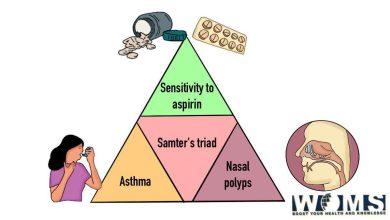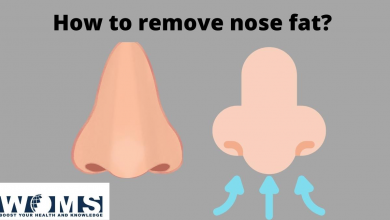Natural Treatments for Liver Dysfunction

The liver is among the greatest delicate organs in the body, and it plays a crucial role in overall health. Liver transplantation improves sufferers’ standard of living and allows them to maintain a healthier lifestyle. Whenever the liver has already been impaired to the extent where it can no longer fulfill its regular activities, it is commonly suggested.
This is referred to as “liver failure, end-stage liver disease, or liver cirrhosis.” Without even a liver transplant, one predicted survival is probably to be quite limited, and one’s standard of living will be extremely bad.
Description Of Liver Dysfunction
Whenever one’s liver is not able to conduct its tasks properly, it is called liver failure (for example, manufacturing bile and ridding the body of harmful substances). Discomfort decreased appetite, and constipation or diarrhea are some of the signs. Abstaining from alcohol and specific meals are among the therapies.
The term “liver dysfunction” describes a variety of illnesses that might harm or impact one’s liver. Cirrhosis can develop as a result of liver illness through a period (scarring).
The liver could not again operate effectively as the inflammatory process substitutes functioning liver cells. Liver dysfunction, if left uncontrolled, can cause liver damage and malignancy.
Whenever one’s liver isn’t able to conduct essential functions properly, it’s called liver dysfunction. Liver dysfunction is a life-threatening condition that necessitates prompt clinical intervention.
The Liver Is Responsible For A Variety Of Vital Tasks, Such As:
- Producing blood proteins that help in coagulation, oxygen movement, and the body’s immune function
- Producing bile, a chemical that aids in the digestion of food
- Assisting the body in the storage of carbohydrates (glucose) as glycogen
- Getting rid of toxic compounds in the body’s circulation, such as alcohol and drug abuse
- Saturated fat is broken down and cholesterol is produced.
Liver Dysfunction Can Be Divided Into Two Categories
- Acute liver failure occurs whenever the liver ceases operating over weeks or months. The majority of folks that seem to acquire this wouldn’t have any form of liver ailment or issue before something like this.
- Chronic: The liver’s dysfunction accumulates throughout time, causing it to quit operating.
What Factors Contribute To Liver Dysfunction?
Hepatitis B and C, non-alcoholic fatty liver disease, alcohol misuse, and hemochromatosis are only a few of the illnesses that cause liver dysfunction.
Cirrhosis is a common form of persistent liver dysfunction. Cirrhosis is the inflammation of the liver caused by repetitive or long-term damage, also including heavy alcohol consumption across duration or persistent hepatitis. The liver lacks its capacity to operate as inflammatory processes substitute functioning liver cells.
The following are the leading causes of acute liver dysfunction:
- Hepatitis B and other viral diseases
- Misuse of pharmaceuticals or poisons, such as paracetamol (Tylenol®), as well as other prescriptions (such as antidepressants, antidepressants, anti-seizure meds, man-made hormones, and antifungal agents) and herbal remedies (green tea extract and kava).
- Wilson syndrome and chronic hepatitis are examples of metabolism (biologic) or circulatory (vessels that transport fluids, like arteries) illnesses.
What Are The Clinical Manifestations Of Liver Disease?
The onset of liver dysfunction may take several years. The signs of liver dysfunction are frequently confused with that of other medical disorders, making it difficult to identify through its initial phases. When one’s deteriorating liver becomes generally weaker, the feelings will worsen.
Severe liver dysfunction, or liver malfunction which lasts a long time, can result in:
- Tiredness
- Vomiting
- Appetite reduction.
- Diarrhea
- Blood in the vomit
- Stool with blood in it
Signs of liver failure develop increasingly worse as time goes on. Indications of liver dysfunction in its final phases could include:
- Jaundice is a type of jaundice that occurs (yellowing of the skin and eyes)
- Severe exhaustion
- Bafflement (confusion and uncertainty)
- In the abdomen and extremities, there is an accumulation of fluid (arms and legs)
- The liver can collapse unexpectedly on occasions.
Acute liver dysfunction is the medical term for this condition. The following are some of the indications that patients with acute liver failure may experience:
- Bleeding
- Alterations in mental health
- Breath odor (musty or sweet)
- Problems with movement
- Appetite loss.
- Unwellness in general
- Jaundice
Illustration Of The Liver Dysfunction Treatments?
The sort of liver illness you develop or how far have developed determines your therapeutic approaches. Therapeutic interventions include:
- Abstaining from alcohol can help with alcohol-related liver damage.
- Modifications in your lifestyle can enable you to manage several forms of liver problems. Abstaining from alcohol, restricting calories and fat, and boosting fiber consumption can help those with fatty liver illness.
- Medicines: Several forms of liver disease are treated with prescription medicines by medical doctors. You may be prescribed medication to treat viral infections such as hepatitis or genetic diseases such as Wilson disease.
- Whenever liver illness develops to the point of liver problems, a liver transplant may be the ultimate solution. Your liver is replaced with a functioning liver during transplantation.
What Are Some of The Side Effects of Liver Disease?
Certain forms of liver problems can raise your chances of getting liver cancer. Others would end up harming one’s liver if left untreated. Cirrhosis (scarring) occurs as a consequence of this.
A malfunctioning liver will eventually be unable to operate due to a lack of normal tissue. Untreated liver dysfunction can cause liver damage.
Conclusion
The therapy for liver illness is determined by diagnostics. Several other liver conditions can be treated by making lifestyle changes, such as quitting drinking or weight loss, Usually as part of the healthcare treatment plan that involves regular liver function testing.
Additional liver issues might demand medicine or surgery. Therapy for a liver disorder resulting in or has resulted in liver problems may eventually necessitate surgical intervention.
FAQs
Is liver failure reversible?
It’s a life-threatening emergency that necessitates admission to the clinic. Acute liver dysfunction can occasionally be treated and reversed, according to the reason. However, in many cases, a liver transplant will be the only option.
What are the signs that the liver is failing?
Weakness, vomiting, decreased appetite, pressure on the right side, just underneath the ribs, and constipation are all symptoms of acute liver dysfunction. Acute liver loss is a dangerous disorder that requires immediate medical attention.
It necessitates immediate medical attention. If your current therapies aren’t working, individuals might be a prospect for surgical intervention.
What is the best way to treat a liver that isn’t working?
Several liver issues can be addressed with lifestyle changes, such as quitting drinking or eating healthily, as part of the healthcare regimen that involves regular liver function testing. Various liver issues might demand medicine or surgery.




